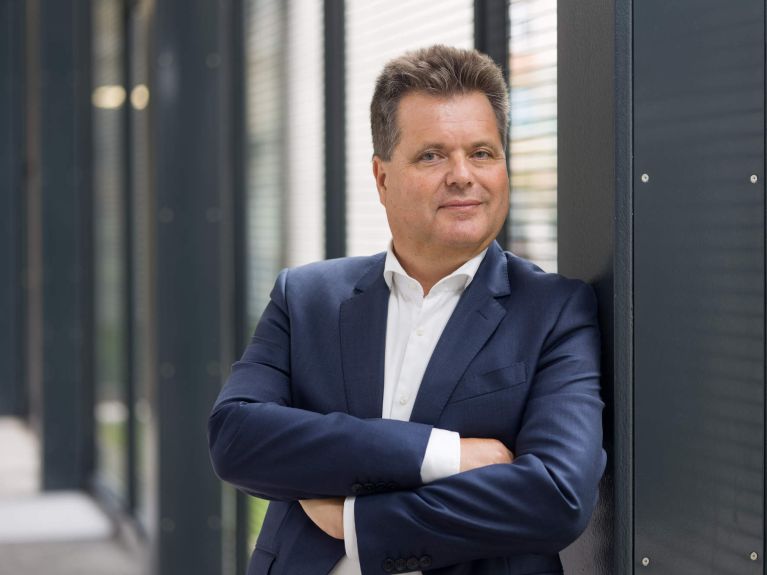“The same rights as everyone else”
Jürgen Dusel, the German government’s disabilities commissioner, explains why inclusion is a democratic value and where action is still needed.

Around 13 million people in Germany have some kind of disability; around eight million of them are severely disabled. In many places, there is still room for improvement as regards barrier-free access in Germany. Since 2018, Jürgen Dusel has been Germany’s federal government commissioner for matters relating to persons with disabilities. His task is to see to it that all the federal government’s ministries ensure the equal participation of people with disabilities - in all areas of life.
Mr Dusel, your guiding philosophy is “democracy needs inclusion”. What is the idea behind this motto?
Everyone needs comprehensive opportunities for participation, that’s part and parcel of a democracy. At times, it seems as if inclusion has become just a buzzword. And yet it has to do with democracy itself. People with disabilities are citizens of this country and have the same rights as everyone else. We must take steps to ensure that everyone is able to exercise these rights. In my view, a country can only be considered truly democratic if it thinks and acts inclusively. We must see this as a defining value of our democracy.
What have been your biggest successes so far?
One was to double the income tax allowances for disabled persons. This demonstrated that the German government doesn’t regard inclusion merely as a fine-weather concept but really takes it seriously. This was a clear mark of respect to those who go out to work and pay income tax. I also fought for a long time to improve participation in working life. This year, the legislator doubled the compensatory levy that companies are required to pay if, despite having an obligation to do so, they do not employ any severely disabled people. That was also an important step.
And where is action still needed?
Much still needs to be done in the future, especially when it comes to barrier-free access in the private sector. Anyone wishing to go to a restaurant or the cinema, and anyone generally wishing to be mobile, must have the opportunity to do this. Barrier-free access is the hallmark of a modern country with a high quality of life, in my opinion. I am in favour of obliging the providers of products and services in the private sector to make at least adequate provisions to ensure barrier freedom. For example, we need more barrier-free doctor’s surgeries in Germany. Currently, only around a quarter of all doctor’s practices are barrier-free, and this urgently needs to change. This illustrates that inclusion is indispensable in all areas of life.


